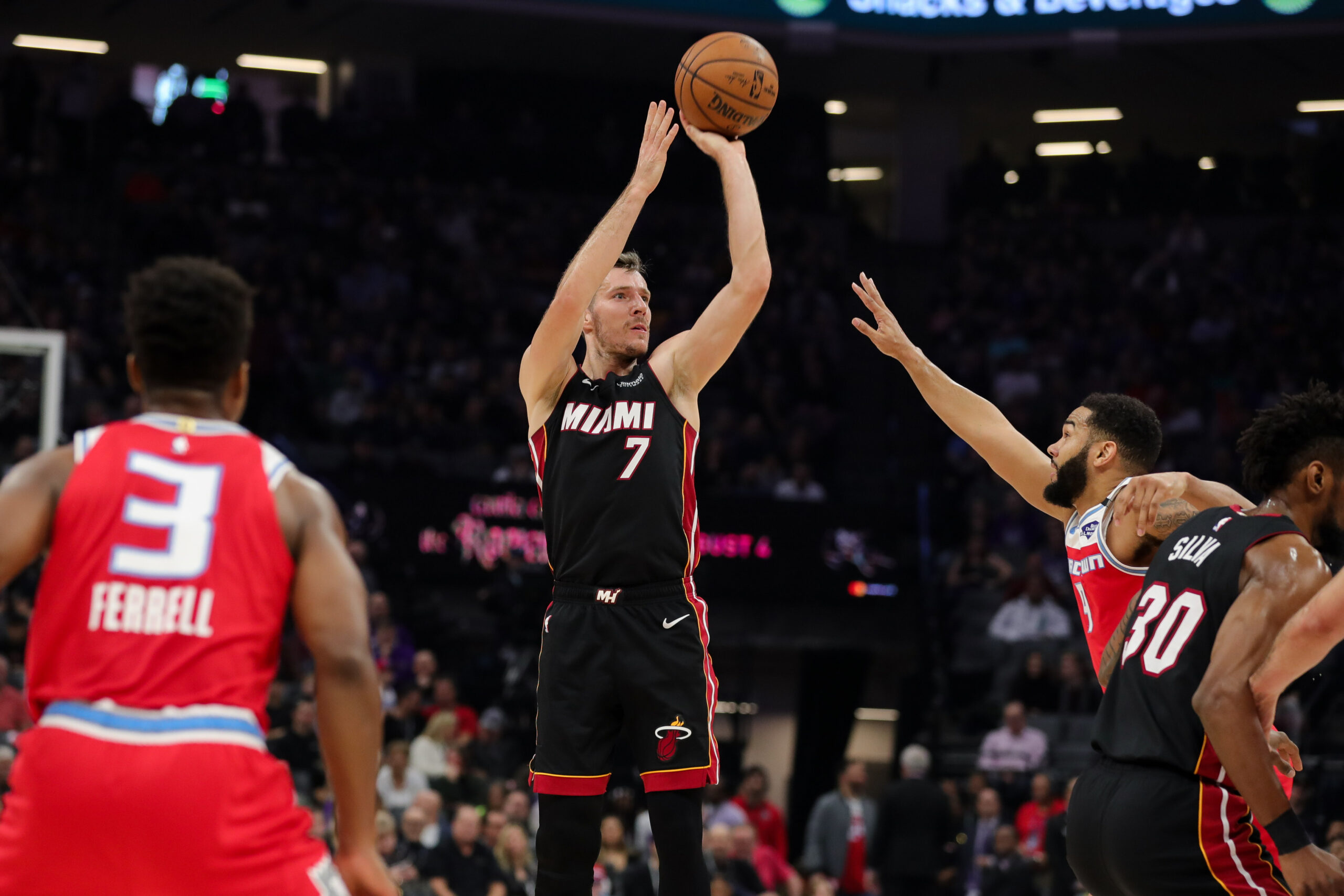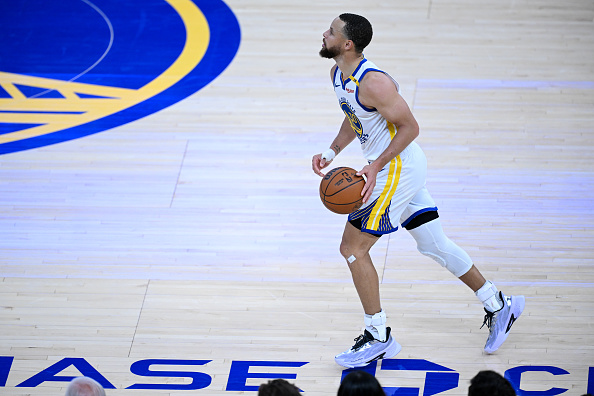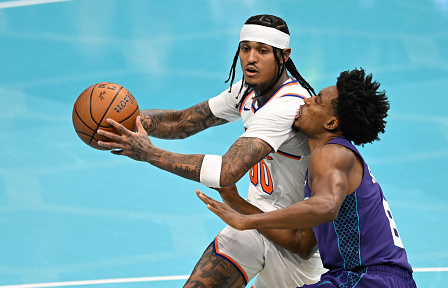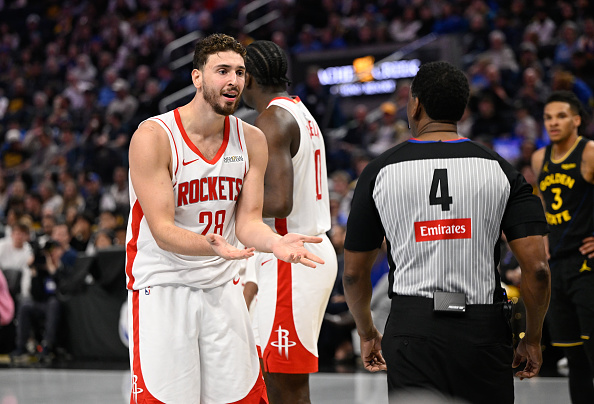The Miami Heat made a surprising move at the NBA trade deadline by acquiring veteran Andre Iguodala from the Memphis Grizzlies in a trade package centered around young forward Justise Winslow.
Ahead of the deadline, talks expanded the Miami-Memphis deal to include Oklahoma City forward Danilo Gallinari. Those talks were serious enough that OKC granted Heat representatives access to Gallinari to negotiate a contract extension, but Miami and Gallinari couldn’t agree to terms and that end of the deal stalled.
In the end, the Heat traded Justise Winslow, Dion Waiters, and James Johnson to Memphis for Andre Iguodala, Jae Crowder, and Solomon Hill. The Grizzlies then sent James Johnson to Minnesota in exchange for Gorgui Dieng.
With this move, Miami managed to solidify its positioning in the Eastern Conference playoff picture for this season while maintaining salary cap flexibility for 2021. They also lowered their luxury tax bill, created room to add a potential buyout player, and opened up salary cap space for this coming off-season.
Giving Up on Justise Winslow
People who have analyzed the trade from Miami’s perspective look at two things: Winslow’s potential and Iguodala’s age. And while those arguments may hold some merit, they don’t tell the whole story.
The 10th overall pick in 2015, Winslow is an incredibly talented 23-year-old who can play multiple positions. He flashed defensive versatility as a rookie during the Heat’s playoff run in 2016. That season he played 78 games. Now, in his fifth season, that mark remains the highest of his career.
The issue with Winslow, particularly of late, has been injuries. And it hasn’t been just one over his five-year career. Winslow has played in only 241 of a possible 457 games. He’s missed 134 games to date since his rookie season. While Winslow is wildly talented and loaded with potential, the best ability, sometimes, is availability. And that’s not something he’s had recently.
The availability element might be why this trade works the best in Miami’s favor. Yes, they’re acquiring a 36-year-old veteran who hasn’t played a single minute this season and whose last game was in June. But once Iguodala makes his debut, he’ll provide something Miami saw precious little of from Winslow: playing time.
The Upside of the Additions
For most of the season, Heat Head Coach Erik Spoelstra has rolled with limited rotation. This season, Miami has nine players who’ve played more than 850 minutes. Winslow, Waiters, and Johnson combined to play just 675 minutes this season. When Udonis Haslem is added to this mix, it becomes clear that the Heat essentially had four dead roster spots.
Beyond Winslow’s injury history, Dion Waiters played just 42 minutes this season. His questionable behavior landed him in the doghouse, and he was suspended on three different occasions by the Heat for conduct detrimental to the team. The most notable example of this was Waiters’ episode with gummies on a team flight to Los Angeles earlier this season.
James Johnson made his way into the rotation of late, but that was largely out of necessity. Johnson failed to meet the team’s preseason conditioning and weight baselines and did not become a regular fixture in the rotation until January.
Haslem has played in only two games this season for a total of 11 minutes. And the back end of Miami’s rotation has been comprised of G-league players and two-way contract guys like Chris Silva. They’re nice players, but not meaningful contributors.
The additions of Iguodala, Crowder, and Hill all add capable, available players for Spoelstra to incorporate into the lineup. Jimmy Butler has played over 1500 minutes this season despite missing seven games. These additions will limit the need for Spoelstra to rely on Butler heavily on both ends of the court.
Butler seems to be at his best as a perimeter defender when he can roam and help off the man he’s guarding. Against the 76ers recently, Butler short-circuited several Philly’s offensive sets because he helped so far off his man. He’s currently eighth in the league in steals, and most of those have come from playing passing lanes off the ball. The additions of Iguodala and Crowder will help that happen more often.
Both Iguodala and Crowder, and to a far lesser extent Hill, should be useful 3-and-D types who can take on perimeter threats and space the floor for Butler and Bam Adebayo.
Making Money Moves
The Heat had a bleak future less than one year ago. Saddled like albatrosses around their neck were the terrible, seemingly unmovable contracts of Tyler Johnson, Hassan Whiteside, Dion Waiters, and James Johnson. They had no flexibility and were hard-capped and largely irrelevant.
The moves the front office, specifically Pat Riley and GM Andy Elisburg, have made since then have reinvigorated the franchise and made them poised not only for a playoff run but for the future as well.
The main reason the Thunder part of the trade fell through is that Gallinari wanted an extension that would’ve included guaranteed money in 2021-22. Miami wasn’t willing to do that because it wants to preserve max cap space for the summer of 2021. They felt a four-month rental of Gallinari wasn’t worth the draft compensation it would have required for Oklahoma City.
In the short term, this move saves Miami $3 million in luxury tax. The team is now nearly $3 million below the tax line and has at least $2.8 million to spend in the buyout market. It could be as much as $3.9 million if Miami cuts Solomon Hill.
For next season, trading the combined $41.7 million in the salaries of Winslow, Waiters, and Johnson for the $15 million in salary for Iguodala means Miami will have at least $27 million in freed up cap space. Miami immediately becomes the most attractive destination for free agents in the summer of 2020 because they are the only contending team with meaningful space.
That $27 million figure would balloon to $40 million if Kelly Olynyk were to decline his player option.
This means Miami can now afford to supplement its current young core with the veterans who are already on the roster. Goran Dragic and Meyers Leonard both have expiring contracts this season and could be re-signed using that space. Derrick Jones Jr., the exciting young talent that he is, will also likely be signed to a multi-year deal. Jones Jr. is one of the most well-liked players in the locker room, and the idea of keeping this core together has positive effects on an already very good team chemistry.
Still, none of this has had any meaningful effect on Miami’s ability to pursue the top free agents in 2021, such as Giannis Antetokounmpo. But their current salary cap outlook has them poised with space for a max-salary slot and another significant slot.







